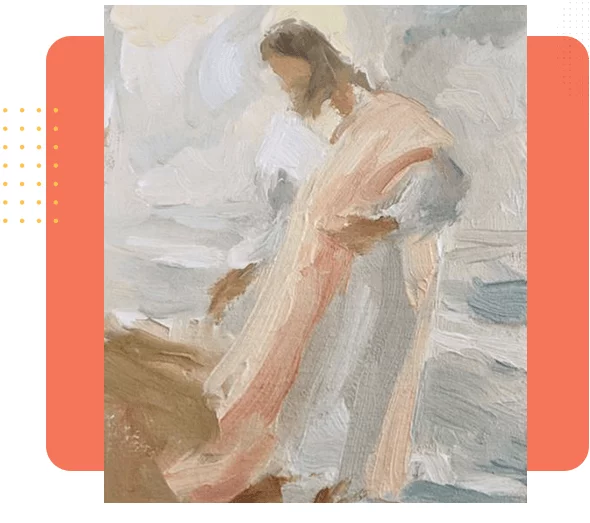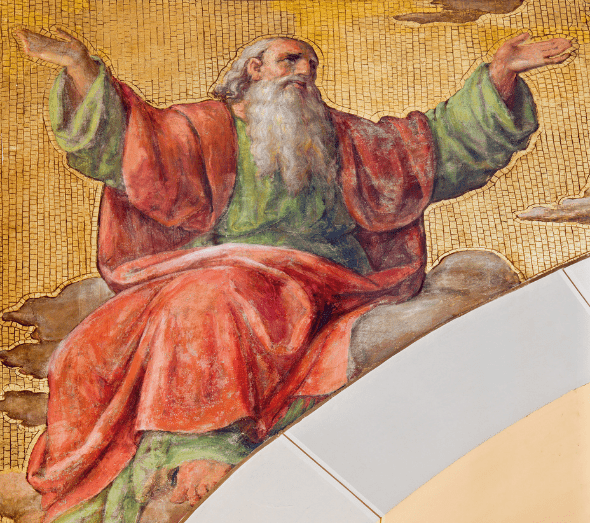Most religious traditions have come to deify their prophets in one form or another, viewing them as something more than human, especially after their deaths.
Deification Meaning
Deification of prophets after their death is one main avenue whereby these individuals are elevated to a status that is fundamentally beyond humanity. And as with mysterious birth narratives, these stories are up to interpretation: we can accept the literal meaning that there are gods who appear on Earth and walk among us in human form, or we can understand them more as expressions of deep reverence for prophets, who should be seen as exemplars of moral behavior and wisdom.
Deification Of Prophets
I used to believe, for instance, that Lord Krishna was an avatar of the Hindu god Vishnu, and literally incarnated and walked around on Earth as a human being. And though I have come to interpret this more metaphorically later in life, many Hindus—including my mother—do indeed continue to believe this literal version, just as most Christians believe that Jesus was and is a living incarnation of the Abrahamic God.
It is no wonder why religious communities would think of their prophets as such special beings: they give birth to new worldviews and community practices and structures that transcend vast geographical and generational expanses. Stories of their deification keep religions alive even after their founders have passed away.
Posthumous Deification Of Religious Figures
The followers of prophets across religions have also always had a vested interest in deifying their leader—by pronouncing them as gods, the teachings attributed to them became absolute and unquestionable. This is the way followers are recruited, and unfortunately it also opens the door to abuses of power as religious leaders seek to gain control over their followers by appealing to authoritative scriptures that cannot be argued against or by claiming to be in direct contact with these prophets or with God.
Deification In World Religions
One example of a prophet deified after death is Confucius, but Confucius was never thought of as a prophet during his life—indeed, though he was much beloved by his students, he along with his teachings did not achieve much fame during his life. Nevertheless, his teachings have been gospel in China for thousands of years, having an overwhelming influence on the cultural and educational direction of the nation matched by none. In this sense, it is perhaps his teachings more so than him as an individual which have been deified.

How Prophets Become Gods In Myth
Two examples of prophets that faced, and thwarted, attempts at deification during their lifetime were the Buddha and Muhammad. Muhammad was quick to insist that there was nothing divine or miraculous about him, that he was simply God’s messenger, and that people should direct all their reverence toward Allah rather than toward himself. This is why it is still highly taboo to depict Muhammad directly in any form—he expressly forbade this, as he did not want his followers to deify him for fear that they would worship him rather than God.
Worship Of Prophets After They Die
Finally, in Judaism and Daoism there are examples of describing prophets as immortal. In the Hebrew Bible, Enoch and Elijah are the only two human beings to have never died, entering into the kingdom of Heaven while still fully alive. And in Taoism, prophets such as Lao Tzu and Chuang Tzu are said to dwell in a heavenly realm among the gods and other “Immortals,” individuals who were so skilled at cultivating the Tao in their lifetime that they essentially achieved superpowers and immortality, with the ability to walk through fire, walk on clouds, and so forth. Sometimes, too, these prophets are said to be mythical creatures like dragons.
Although many prophets explicitly denied that they were anything more than human during their lifetime, their followers elevated their status to rally the religious community around such individuals by collectively recognizing them as special and superior. However, this sometimes has the unfortunate side-effect of emboldening followers to take an exclusivist attitude toward religion, seeing the doctrines and prophets of other traditions as inferior imposters.
Apotheosis in Hinduism
“The double nature of incarnation—simultaneously human and not human—can be traced back to the Upanishadic belief that our souls are all incarnations of the immortal brahman though our bodies are subject to the cycle of reincarnation.”
—Wendy Doniger, Indologist and historian of religion
Deification in Baha’i
“The Prophets, unlike us, are pre-existent. The Soul of Christ existed in the spiritual world before His birth in this world. We cannot imagine what that world is like, so words are inadequate to picture His state of being.”
—Shoghi Effendi, Baha’i leader

Apotheosis in Christianity
“These are written, that you may believe that Jesus is the Christ, the Son of God, and that believing you may have life in his name.”
—The New Testament (John 20:31), Christian text
Deification in Buddhism
“Notwithstanding [the Buddha’s] own objectivity toward himself, there was constant pressure during his lifetime to turn him into a god. This he rebuffed categorically, insisting that he was a human in every respect.”
—Huston Smith, scholar of religion
Deification in Islam
“Allah, he insisted, had not sent him to work wonders. If signs be sought, let them not be of Muhammad’s greatness but of God’s, and for these one need only open one’s eyes to the wonders of nature. The only miracle that Muhammad claimed was that of the Koran itself. That he with his own resources could have produced such truth—this was the one naturalistic hypothesis he could not accept.”
—Huston Smith, scholar of religion
Popular Reads
Fire Symbol Meaning |Religious Garments |False Narrative |Define Charioteer |Tree of Life |Divine Words |Music is a Universal Language |Allegory of the Cave |Flood Myth |Creation Stories from Different Religions |Hippocratic Oath |Fasting and Religion |Spiritual Transcendence |Sacred Books of Religions |What is Divine Justice |Believing in a Higher Power |Spirituality and Money |Oneness with God |Religious Conversion |Religious Ritual |Sacred Spaces |Promised Land Meaning |Union With God |Tithing |Spiritual Awakening |Golden Rule in all Religions |Love and Social Justice |Common Themes in all Religions | Journey Of A Hero | Gods Laugh | Spiritual Nature | What Is Karma | Spiritual Dreams


